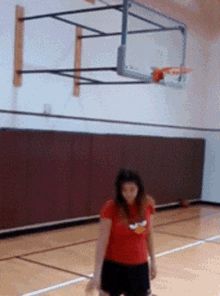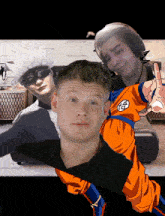When folks talk about "back shots" these days, they're almost certainly referring to a specific kind of physical closeness, one where a person's back is facing their partner during an intimate act. This way of being together, you know, has been around for ages, yet the phrase itself feels pretty fresh and has really taken off in online chats and social circles. It's a term that, in some respects, has become a stand-in for older, perhaps more common phrases, getting a lot of traction because it just sounds a little newer, a bit more current.
For quite some time now, many people have known this particular position by another name, "doggystyle," but it seems recent internet users, those who spend a lot of time online, have picked up "back shots" instead. This shift, honestly, might be because it carries a slightly different vibe, perhaps feeling less ordinary or overused. It's a good example, basically, of how language can change and adapt, especially when new ways of talking emerge from popular online spaces.
This term, then, pops up in all sorts of digital spots, from social media clips and animated pictures meant to spark a bit of fun conversation, to online communities where people discuss such things. It's pretty interesting, actually, how a phrase can spread so widely and quickly, becoming part of a shared language across different platforms. We'll explore just how this term found its footing and what it means to various people.
Table of Contents
- Who is Spice and Why is She Mentioned with "Back Shots"?
- What Exactly Are "Back Shots" in Popular Speech?
- Beyond the Usual - Other Meanings of "Back Shots"
- How Did "Back Shots" Become a Catchphrase?
- Where Do We See "Back Shots" Online?
- Can "Back Shots" Mean Receiving a Feeling or Damage?
- "Back Shots" in Visual Culture - From Cave Paintings to Eye Candy
Who is Spice and Why is She Mentioned with "Back Shots"?
When you hear the name "Spice" in the music world, you're usually thinking about Grace Latoya Hamilton, a really well-known Jamaican dancehall artist. She's, you know, quite a force in the music scene, famous for her bold performances, catchy tunes, and distinct style. Her career has seen her put out a lot of hits and gain a huge following, both in Jamaica and across the globe. She’s often praised for pushing boundaries and bringing a lot of energy to her art, which, in a way, makes her a very recognizable figure.
She's known for her powerful stage presence and how she connects with her fans. It's pretty clear she knows how to work a crowd, and that connection, honestly, is a big part of her appeal. Her music often speaks to real-life experiences, and her performances are, well, very memorable. She’s been a significant voice in dancehall for a good while now, always finding ways to stay relevant and keep her audience engaged, which is quite a feat.
Personal Details & Bio Data for Spice
| Full Name | Grace Latoya Hamilton |
| Known As | Spice |
| Occupation | Reggae / Dancehall Artist |
| Nationality | Jamaican |
| Years Active | Since 2000s (approx.) |
| Notable For | Vibrant performances, influential music |
Now, as for why Spice's name comes up when discussing "back shots," it stems from a particular moment that gained some attention. There was, apparently, a situation where a fan was seen interacting with her on stage in a way that was described as "giving back shots." This kind of public, on-stage interaction, you know, can really capture people's notice and sometimes become a talking point, especially when it involves a well-known personality like Spice. It highlights how certain terms can become associated with public figures, even if the connection is just from a single event that gets widely shared or talked about, which, in a way, shows the broad reach of celebrity culture.
- Home Run Derby National Anthem
- Edgardo Canales
- Andre Jin Arrest
- Love Island Uk Season 11
- Who Is Haylujan
What Exactly Are "Back Shots" in Popular Speech?
In everyday conversations, especially among younger crowds and online, "back shots" is, quite simply, a term for a sexual act where one person's back is facing the other. It's, well, a pretty direct way to describe that particular position. For many years, this act was most commonly known as "doggystyle," but as we mentioned, the internet, with its constant flow of new words and phrases, has, in some respects, made "back shots" a very popular alternative. It's almost as if the newer term feels a little more immediate, less formal perhaps, which could be why it caught on so quickly.
The shift from "doggystyle" to "back shots" really shows how language evolves, doesn't it? It's not just about finding a new word for an old thing; sometimes, it's about finding a word that feels more current, more aligned with how people are communicating right now. The internet, obviously, plays a huge role in this. Think about it: a phrase can spread globally in moments, becoming part of a shared vocabulary almost overnight. So, in this context, "back shots" has become a pretty common way to refer to that specific intimate position, especially in informal settings.
It's interesting to consider that while the act itself has been around for ages, the way we talk about it can change. The term "back shots" is, in a way, a product of our digital age, where slang and informal language often gain widespread acceptance very quickly. This term, essentially, serves as a more contemporary, perhaps more direct, label for an age-old act, reflecting the ever-changing nature of how we speak about intimate topics. It just goes to show, you know, how words can pick up new meanings and uses as time goes on, especially with the influence of online communities.
Beyond the Usual - Other Meanings of "Back Shots"
While "back shots" is most often used in a particular way in popular culture, it's pretty interesting to note that the term, or parts of it, has other, completely different meanings in other contexts. For instance, you might come across "backshot wheel," which refers to a specific type of water wheel. This is, clearly, a very different kind of "back shot" entirely, having nothing to do with personal interactions. It just goes to show, doesn't it, how words can have multiple lives depending on the field or area of discussion.
Then there are the books. "Backshot" is also the title of a novel by David Sherman and Dan Cragg, part of their Starfist: Force Recon series. And, you know, there's another novel with the same title by George G. Gilman. These uses are, basically, about storytelling and adventure, a world away from the common slang meaning. It's a good reminder that language is full of these overlaps, where the same word or phrase can point to totally different things, which, in a way, makes it all the more fascinating.
So, when you encounter the phrase, it's always worth considering the context. Is it being used in a casual conversation, or are you reading about, say, historical machinery or military science fiction? The meaning changes entirely. This variety, honestly, adds a bit of richness to our language, showing how words can be reused and repurposed across various fields. It’s pretty cool, actually, how a single phrase can mean so many different things, depending on where and how you hear it, which, in some respects, is a testament to the flexibility of words.
How Did "Back Shots" Become a Catchphrase?
The term "back shots" really took off as a catchphrase because of a pretty unusual incident that started on Instagram. Apparently, an individual posted a story offering "back shots" immediately after putting up an "in memoriam" tribute for their late grandmother. This juxtaposition, the sudden shift from a serious, heartfelt message to a very suggestive offer, was, well, so unexpected and jarring that it caught people's attention in a big way. It was, you know, a moment that made people do a double-take, and that kind of surprise often leads to things going viral.
Because of how shocking and, frankly, out of place this offer seemed next to the memorial, the phrase quickly became a sort of inside joke or reference online. People started using it with suggestive images of all sorts of characters, both in simple image macros and in videos with captions. It’s pretty wild, honestly, how something so specific and, in a way, inappropriate, can become a widely recognized piece of internet humor. It just goes to show how quickly things can spread and change meaning in the digital space, becoming something totally different from their origin.
This whole situation highlights how internet culture works, doesn't it? A moment of unexpected humor or absurdity gets picked up, twisted, and then spread far and wide, often losing its original context along the way. The catchphrase referencing "back shots" is, basically, a prime example of this phenomenon, showing how a phrase can become a meme, used playfully or ironically, even if its origins are a bit dark or strange. It's really quite something how a phrase can gain such traction, becoming part of the broader online lexicon, which, in some respects, is just how the internet rolls.
Where Do We See "Back Shots" Online?
Once a term like "back shots" gains traction, it starts showing up everywhere online, in all sorts of places where people connect and share. You can find animated pictures, often called gifs, that use the term in ways meant to make conversations more positive or more expressive. These little moving images, you know, help people communicate feelings or ideas without using a lot of words, and "back shots" gifs are apparently part of that visual language. They add a bit of spice to online chats, making them more lively, which is, honestly, a pretty common use for gifs.
Online communities, especially on platforms like Reddit, have dedicated spaces where people discuss this topic. There are, for instance, communities like "backshotsfrombbc" with a large number of members, and others like "R/backshotpovtwo," suggesting that people are looking for specific types of content related to "back shots." These groups, basically, serve as gathering spots for those interested in sharing or viewing particular kinds of media, showing how niche interests can find a home online. It's pretty clear that these communities are quite active, given the number of subscribers and posts.
Beyond static images and dedicated forums, the term also pops up in short video clips and other forms of visual content. On platforms like TikTok, for example, if you search for "#backshots," you'll find a massive number of videos, over 30 million posts, showing just how widely this term is used in short-form video content. It’s a testament, really, to the reach of social media in spreading slang and popular culture. And, you know, for those looking for definitions or origins, resources like Urban Dictionary also provide information, case studies, and even statistics on its usage, giving a bit of background to the term's journey through online spaces.
Can "Back Shots" Mean Receiving a Feeling or Damage?
Interestingly, some definitions of "back shots" hint at a meaning beyond the intimate act, suggesting it could refer to receiving a strong feeling or even damage from someone else while they are, perhaps, on another's back. This interpretation is, admittedly, less common in the general slang use we've been discussing, but it does appear in some broader dictionary resources. It's almost like the phrase has a very literal, perhaps older, sense that implies impact or consequence, which is pretty different from its popular usage today.
This particular meaning, while not the primary one people think of now, points to the idea of getting something, a force or an effect, from someone else. It's, well, a bit abstract compared to the more direct slang. This shows how words can have layers of meaning, some more widely used than others. It's a good reminder, basically, that language can be quite nuanced, and a single phrase might carry different weight depending on the specific context you find it in. So, while not the most common understanding, it's still a part of the term's overall definition, apparently.
So, if you come across "back shots" in a context that doesn't seem to fit the popular intimate meaning, it's possible it's being used in this more general sense of receiving an impact or a strong sensation. It’s, in a way, a less frequently encountered definition, but one that exists within the broader linguistic landscape. This variation, honestly, just adds to the complexity and richness of words, showing how they can adapt and be interpreted in various ways depending on the situation, which is, you know, pretty cool.
"Back Shots" in Visual Culture - From Cave Paintings to Eye Candy
The concept of "back shots," or at least the visual representation of people in that kind of position, seems to have a surprisingly long history, even stretching back to ancient times. There's a viral image, for instance, of a "backshots cave painting" that apparently depicts a sexual interaction quite similar to the "back shots" position, where one person's back is facing the other. This suggests that the visual idea of this intimate act is, well, not new at all, but something that has been part of human expression for a very, very long time. It's pretty fascinating, honestly, to think about how these ancient depictions connect to modern slang, showing a kind of continuity in human experience.
Moving from ancient art to modern visuals, the term also comes up when people talk about "eye candy poses." This is where the visual appeal of a person, often in a suggestive or attractive stance, is being discussed. While "back shots" specifically refers to a position, the broader idea of "eye candy" includes various ways people pose to look good. So, when people are talking about the "best eye candy poses," the conversation, you know, might include or hint at positions that involve someone's back facing the viewer, which, in a way, ties into the visual aspect of "back shots."
This shows how the term, or the visual concept it represents, exists across different forms of visual culture, from historical art to contemporary media. Whether it's an old drawing or a modern photograph, the visual of a person from behind, especially in certain contexts, can be quite striking. It's, basically, about how bodies are presented and perceived, and "back shots" as a term or a visual, fits right into that discussion, showing up in various forms of visual content, which is, honestly, quite widespread.
This article has explored the term "back shots," covering its primary meaning as a penetrative sexual act similar to doggystyle, and how it gained popularity as a fresher internet slang term. We looked at its unexpected origin as a catchphrase from an Instagram story, its widespread use across platforms like Reddit and TikTok, and its inclusion in various online resources like Urban Dictionary. We also touched upon its less common definitions, such as receiving a force or damage, and its appearance in other contexts like water wheels and novel titles. Finally, we discussed its presence in visual culture, from ancient cave paintings to modern "eye candy" poses, and highlighted the celebrity connection with artist Spice.
Related Resources:



Detail Author:
- Name : Robyn Nikolaus
- Username : oberbrunner.jaycee
- Email : zmohr@moen.net
- Birthdate : 1995-11-24
- Address : 687 Zieme Extensions Apt. 975 Leoburgh, SD 95671-6260
- Phone : +17603498241
- Company : Rowe, Gutmann and Jerde
- Job : Bindery Worker
- Bio : Dolores nobis tempore inventore aut omnis dolores doloremque. Esse iusto in qui autem maxime. Et voluptatum eaque harum amet quis at.
Socials
twitter:
- url : https://twitter.com/gene.bergnaum
- username : gene.bergnaum
- bio : In quia impedit est consequatur perspiciatis. Qui iste velit deleniti qui. Doloribus incidunt voluptatibus libero repellat.
- followers : 3447
- following : 1714
instagram:
- url : https://instagram.com/bergnaum1971
- username : bergnaum1971
- bio : Cupiditate aut est sint aut. In non assumenda quas eveniet explicabo maiores.
- followers : 3032
- following : 566
linkedin:
- url : https://linkedin.com/in/genebergnaum
- username : genebergnaum
- bio : Doloremque nobis quis libero.
- followers : 3054
- following : 1678